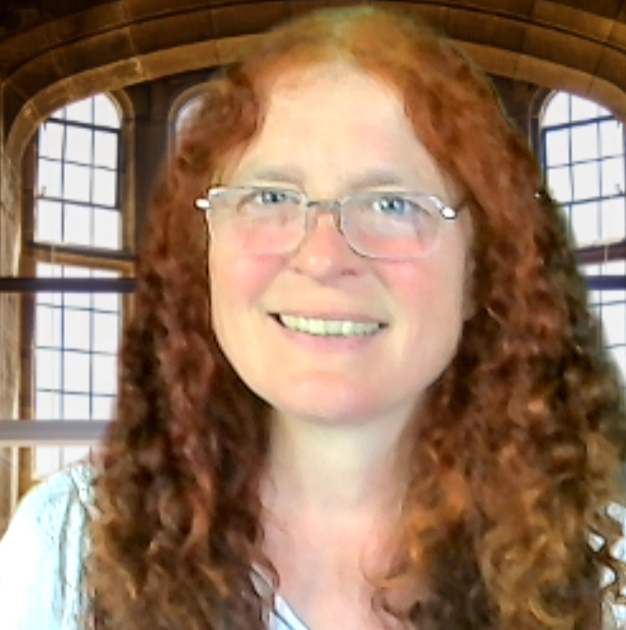Professor Thora Tenbrink
Professor in Linguistics

Contact info
Dean of Research in the College of Arts, Humanities, and Social Sciences
Email: t.tenbrink@bangor.ac.uk
Phone: +44 (0)1248 38 2263
Location:
Room 306, 39 College Road,
Bangor, Gwynedd LL57 2DG, UK
Contact Info
Dean of Research in the College of Arts, Humanities, and Social Sciences
Email: t.tenbrink@bangor.ac.uk
Phone: +44 (0)1248 38 2263
Location:
Room 306, 39 College Road,
Bangor, Gwynedd LL57 2DG, UK
Overview
I am Professor of Linguistics and Director of Postgraduate Research Studies at the College of Arts, Humanities and Social Sciences. My main focus is on discourse analysis, used specifically to understand how people think. I am author of “Cognitive Discourse Analysis: An Introduction” (Cambridge University Press, 2020) and "Space, Time, and the Use of Language" (Mouton de Gruyter, 2007), co-editor of three books on linguistic representation and dialogue, and have published more than 40 peer-reviewed journal articles in areas of language, cognition and communication. In recent years my focus has moved from space (understanding spatial locations and relationships) to place (meaningful relationships to spaces), especially in relation to climate change.
I have always enjoyed interdisciplinary and international collaboration, within areas of cognitive or social science and beyond. Currently I am involved in SellSTEM, an international network of collaborative research led by Dublin, and in various Wales-wide endeavours and projects that address people's views on, and engagement with, environmental concerns. At Bangor, I founded and am now Director of the Places of Climate Change Research Centre (PloCC), an extensive interdisciplinary network of researchers addressing place-based aspects of climate change threats, mitigations and engagement. I am also co-leading the newly established Wales-wide WISERD network Place-based Approaches To Climate Change (PATCCh).
Research
I'm interested in how we use language, and what this tells us about our thoughts (concepts and thought processes). For this purpose I developed an empirical method, Cognitive Discourse Analysis (CODA: Tenbrink, 2015, and 2020, Cambridge University Press). Typically this means giving speakers a particular task to do in which they express their thoughts in some way, and record what they say in response. The linguistic data are then analysed by looking in detail at how language is used to express thoughts. Insights can be related to previous research on how language relates to thought - for example from theoretical cognitive linguistics or other related fields.
Much of my research has focused on how we understand and talk about our spatial environments, for instance when we try to find our way to a destination, or explain how to find an office in a complex building. More recently my focus has turned to notions of place (rather than space): how do we express in language what places mean to us, how do we relate to them, and in what ways might this be affected by the effects of (or mitigations against) climate change?
For more information, please consult my website, knirb.net.
Teaching and Supervision
I have taught modules across many areas of Linguistics as well as some in Cognitive Science.
Within Linguistics, my main current teaching focus is related to methodology, in particular concerning the use of language but also spanning other fields. This comprises Functions of Discourse (which introduces discourse analysis on the basis of Halliday's Systemic Functional Grammar), Cognitive Discourse Analysis, Research Methods in Linguistics, and Language and Communication. My teaching covers fundamental areas in Linguistics (e.g., in Foundations of Linguistics) but also draws on wider insights from Cognitive Science.
I am happy to supervise postgraduate projects in all of the areas mentioned above, in particular those that employ discourse analysis and/or address topics in areas of cognitive linguistics, communication, functional grammar, and more - just get in touch to explore!
Postgraduate Project Opportunities
I welcome enquiries from students interested in pursuing a PhD related to cognitive discourse analysis and communication.
Grant Awards and Projects
EU Project: Enhancing spatial ability to help close the gender gap in STEM Press release
Consortium member of EU project 956124: SellSTEM, EU H2020-MSCA-ITN-2020 Consortium initiated by Dr. Gavin Duffy, Dublin. Title: Spatial thinking in STEM learning: Training a new generation of researchers to increase enrolment and gender balance in STEM learning by addressing deficits in spatial ability among children in Europe. Duration: January 2021 - December 2024.
Research areas and keywords
Keywords
- P Philology. Linguistics
- HT Communities. Classes. Races
- PE English
Education / academic qualifications
- 2005 - DPhil , Localising objects and events: Discoursal applicability conditions for spatiotemporal expressions in English and German
Research outputs (78)
- E-pub ahead of print
Cut off by the tide: How Ocean Literacy can help save lives
Research output: Contribution to journal › Article › peer-review
- Published
Tidal literacy: Public understanding and misconceptions of the tide
Research output: Book/Report › Other report
- Published
Re-thinking people and nature interactions in urban nature-based solutions
Research output: Contribution to journal › Article › peer-review
Prof. activities and awards (45)
Beyond physical robots: How to achieve joint spatial reference with a smart environment
Activity: Talk or presentation › Invited talk
Exploring European Cultural Heritage research networks and opportunities
Activity: Participating in or organising an event › Participation in Academic conference
The role of discourse and place attachment in climate change research
Activity: Talk or presentation › Invited talk
Projects (7)
Media coverage (4)
Community perceptions of new greenspace interventions
Press/Media: Research
Extensive press coverage of public understanding of the tide
Press/Media: Research

